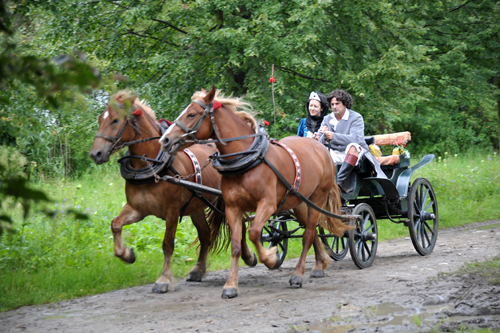
FILM still: Tadeusz Kościuszko rides with Ludwika Sosnowska
Directed by Alex Storozynski
Produced by Eve Krzyzanowski
Premiere: October 1, 2015
Before meeting Tadeusz (Thaddeus, in English) Kościuszko during an inspection of the fortifications at West Point, George Washington had a hard time remembering the Polish patriot’s name and spelled it at least 11 different ways in correspondence. After that day at West Point, however, Washington was so impressed with the Polish engineer’s plans that he never again got Kościuszko’s name wrong.
Like our first president, many Americans have a hard time with Kościuszko’s name. Kościuszko: A Man Ahead of His Time opens with a montage of traffic reports from the Kościuszko Bridge (which connects Brooklyn to Queens), each one pronouncing the Polish name differently. Such mispronunciation likely extends across the United States, where bridges, streets, and towns bear the name “Kościuszko.” And for as many Americans who struggle to say “Kościuszko,” I suspect even more do not know the role he played in our nation’s fight for independence.
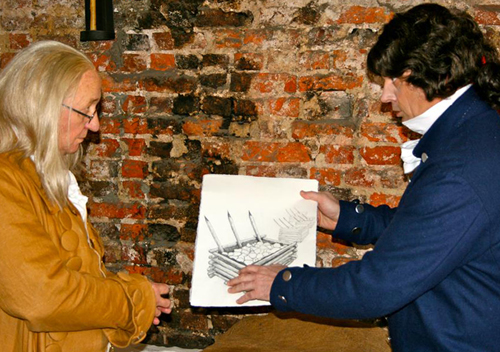
FILM still: Benjamin Franklin with Tadeusz Kościuszko
Kościuszko: A Man Ahead of His Time focuses on Kościuszko’s role in the American Revolution and his relationships with America’s Founding Fathers. Directed by Alex Storozynski, the documentary brings his 2009 history The Peasant Prince: Thaddeus Kościuszko and The Age of Revolution to life on screen. Narrated by Blair Underwood, the documentary features historical reenactment, contemporary footage from the US and Poland, dramatic readings, period artwork, and interviews with former White House National Security Advisor Zbigniew Brzezinski, Brigadier General Theodore D. Martin, Purdue Professor James S. Pula, UCLA Professor Gary Nash, Dr. Betsey Blakeslee of The Kościuszko Garden at West Point, and the Founder of the Kraków Jewish Culture Festival, Janusz Makuch. Altogether, it presents an engaging history of the Polish hero’s lifelong fight for freedom and equality and serves as a fine introduction for Americans used to seeing Kościuszko’s name and image (there are more statues of Kościuszko in the United States than any other historical figure except George Washington), but unsure of his significance.
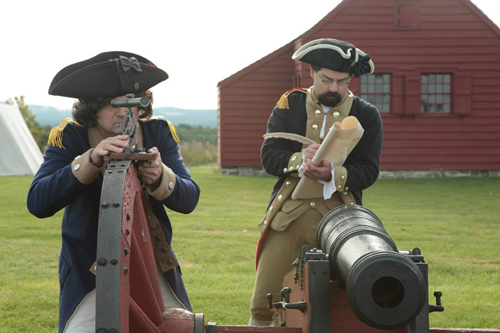
FILM still: Tadeusz Kościuszko at Saratoga
As in his written history of Kościuszko, Storozynski’s film makes a compelling case for Kościuszko’s integral role in the American victory in the Revolutionary War. Having arrived in America with the desire to contribute to the fight for independence, Kościuszko served the Continental Army in any way he could. Due to the lack of military engineers in the colonies, Kościuszko’s training from the Royal Military Academy in Warsaw and his time spent in Paris were invaluable. His first major success came at the Battle of Saratoga, where his plans led to an American victory and a turning point in the war. The film argues, “Most historians agree that the United States never would have been successful without the French alliance. It wasn’t until news of the British surrender at Saratoga arrived in Paris that the French agreed to an alliance and to come out openly in favor of the United States. So without Saratoga there probably would not have been an American alliance with France. There probably wouldn’t have been American independence, and of course it was Kościuszko who was largely responsible for the Americans’ success at Saratoga.” So, while it is probably too simplistic to say “No Kościuszko, No American independence,” it is certainly clear that the contributions of the Polish hero deserve to be remembered and celebrated.
Viewers also are introduced to the story of Kościuszko’s role in the fortification of West Point – which protected the Hudson River and prevented the British from splitting the colonies – and the dramatic history of Benedict Arnold’s treasonous plot to hand over Kościuszko’s plans to the British. While the story of Arnold’s treason is well known to Americans, I suspect few know that a Pole drafted the critical documents Arnold was trying to sell. Having ensured the defense of West Point, later in life Kościuszko encouraged Thomas Jefferson to establish a military academy to train officers – a plan the third president made a reality with the creation of the United States Military Academy at West Point. Since 1828, a monument to Kościuszko has stood at West Point, overlooking the river he defended.
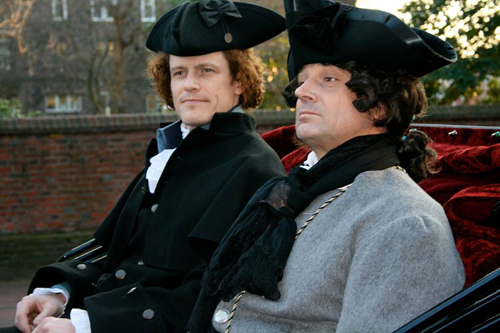
FILM still: Thomas Jefferson with Tadeusz Kościuszko
While the focus is turned to Kościuszko’s American exploits, the documentary does offer a glimpse into his revolutionary effort at home. Unlike the richly developed descriptions of European politics and society found in Storozynski’s book, this film simplifies the narrative with an eye to underscoring the links between the Polish and American struggles for independence and equality. The story of George Washington giving Kościuszko his cameo ring – which bore the image of Lucius Cincinnatus, a Roman farmer who took up arms to lead an army against foreign invasion – is presented as “a symbolic transfer of authority from one general who led his nation to independence to another who would lead his nation against foreign invaders again in the name of liberty.” With Washington’s ring, Kościuszko returned home, where he hoped to lead Poland against the neighboring powers that threatened to wipe the nation off the map. Inspired by what he had seen in America, Kościuszko encouraged the formation of citizen militias and argued that if the sizeable Jewish and peasant populations were give legal status and civil rights, they would be a valuable force in a fight to protect those legal rights and property. Kościuszko’s belief that the fight for independence and equality must be a fight for independence and equality for all stirred him to lead multicultural forces – including scythe wielding peasants and the first Jewish brigade since biblical times – against Russian and Prussian occupation in 1794. While the treatment of this failed rebellion and the details of the situations and personalities that shaped Kościuszko’s time in Poland are somewhat abbreviated, the story of Kościuszko’s struggles in Poland develop a picture of a universal struggle for freedom and will perhaps inspire viewers to seek out more information – a search that should begin with Storozynski’s The Peasant Prince.
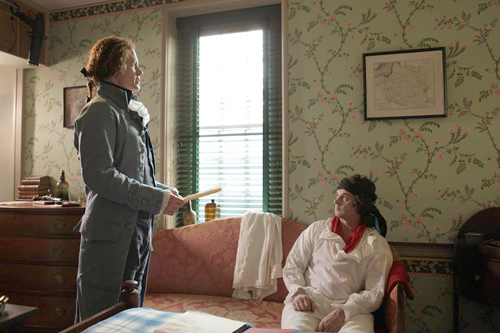
FILM still: Thomas Jefferson with Tadeusz Kościuszko
Kościuszko’s military skill and revolutionary spirit made him a hero of his time, but it was his unyielding commitment to equality and universal liberty that ensured his legacy as a “man before his time” – in the words of Thomas Jefferson, “as pure a son of liberty, as I have ever known.” In his native Poland, Kościuszko tirelessly fought for the legal status and civil rights of peasants and Poland’s large Jewish population. Upon arriving in America – where the noble verse of the newly written Declaration of Independence led him to expect equality – Kościuszko was appalled by American slavery and violent campaigns against native peoples. After the war, Jefferson and Kościuszko became close confidants, and throughout their friendship Kościuszko never relented in his efforts to show the man who drafted “all men are created equal” the hypocrisy of owning slaves. In a gesture of his highest ideals and desire to make America live up to her revolutionary promise of liberty for all, Kościuszko entrusted the $17,000 owed him in back pay and interest to Thomas Jefferson to buy the freedom of some of his slaves and provide them land and education “that they might pass on to their children and become true citizens of the American republic.” Jefferson ignored this last request, yet Kościuszko’s advocating for the rights of all is not forgotten. After Booker T. Washington visited Kraków in 1910, he remarked “ I did not know what Kościuszko had done for the freedom and education of my own people. When I visited the tomb of Kościuszko, I placed a rose on it in the name of my race.” Like Kościuszko, this film calls on us to live a life in service of greater tolerance and equality. Its final epitaph – Kościuszko’s famous motto – “For your freedom and ours” is not just an echo from the past, but a vision for the future.
Kościuszko: A Man Ahead of His Time paints a compelling picture of Kościuszko as a champion of freedom and civil rights both in the United States and Poland. In highlighting this pivotal role in the American Revolution and his close personal relationships with our Founding Fathers, Storozynski’s documentary distills the material of his rich biography into a narrative that places Kościuszko firmly among America’s pantheon of revolutionary heroes. Just as he pushed them to expand their vision of equality and civil rights, so too does Kościuszko’s legacy call on us to fight forces of inequality and discrimination. Washington never forgot Kościuszko after witnessing his engineering genius, and having been exposed to Kościuszko’s extraordinary life and legacy, I’d be surprised if anyone walks away from this film and forgets Kościuszko’s name.
CR

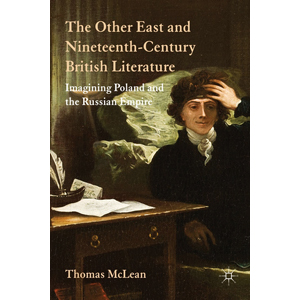

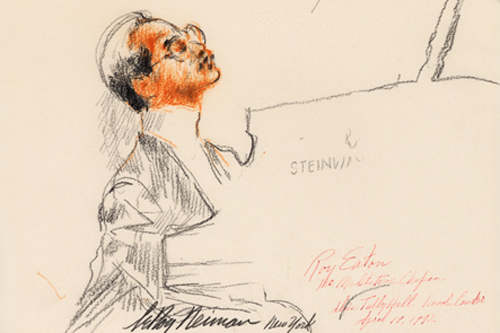
Pingback: Welcome to Fall 2015!
I really enjoyed this review! I hope that PBS does a national broadcast!
Can we pressure PBS to do a national broadcast of Thaddeus Koszciuszko : Hero of the American Revolution ?
Pingback: Welcome to Winter 2016!
I really enjoyed this story. I grew up in NJ and my father who was first generation of my Polish knew some of this story and took us children to West Point frequently. My cousin went to West and I was in his wedding there and showed my daughters Koszciuszko’s statue. I would like a DVD of this movie to show my friends in San Francisco.
This is a great story and I have gone to West Point many times with my Polish family.
How can I purchase a copy of this film?
This is a great hero that we all must see in our movies, TV shows, and news.
I would like to purchase a copy of the film “Kosciuszko, A Man Before His Time”. At the end of the PBS showing it displayed info on obtaining a copy. After spending hours on the internet and making phone calls and sending emails, I’ve NOT___ (100&), NOT HAD ANY SUCCESS AT ALL IN OBTAINING A COPY OF THE DVD. ___________PLEASE HEEEELP!!!
I would like to buy a copy of this film.
The PBS rebroadcast tonight on October 29, 2017 says the DVD is available from http://www.peasantprince.com but that website does not have an active link for ordering it and neither does Barnes & Noble nor Amazon. Either we are being given fake news two years after the 2015 screening of this film in Europe or they are ahead of their time to sell the DVD, like Kosciuszko: a man before his time.
“The company making the DVDs has not yet set up the link and it is frustrating. Hopefully it will be up shortly and we can announce the news on The Peasant Prince Facebook page and other places.”
The company making the DVDs has not yet set up the link and it is frustrating. Hopefully it will be up shortly and we can announce the news on The Peasant Prince Facebook page and other places.
“The company making the DVDs has not yet set up the link and it is frustrating. Hopefully it will be up shortly and we can announce the news on The Peasant Prince Facebook page and other places.”
“The company making the DVDs has not yet set up the link and it is frustrating. Hopefully it will be up shortly and we can announce the news on The Peasant Prince Facebook page and other places.”
The documentary film “Kosciuszko: A Man Ahead of his Time” is finally available on DVD. Kosciuszko was a prince among men. He stood up for the rights of enslaved Africans, indentured European serfs, Jews, Native-Americans, women and all who were discriminated against. His message of freedom and respect for all is just as important today as it was in the 18th century. He was a Polish and American hero we can all be proud of. https://peasantprince.com
The documentary film “Kosciuszko: A Man Ahead of his Time” is finally available on DVD. Kosciuszko was a prince among men. He stood up for the rights of enslaved Africans, indentured European serfs, Jews, Native-Americans, women and all who were discriminated against. His message of freedom and respect for all is just as important today as it was in the 18th century. He was a Polish and American hero we can all be proud of. https://peasantprince.com